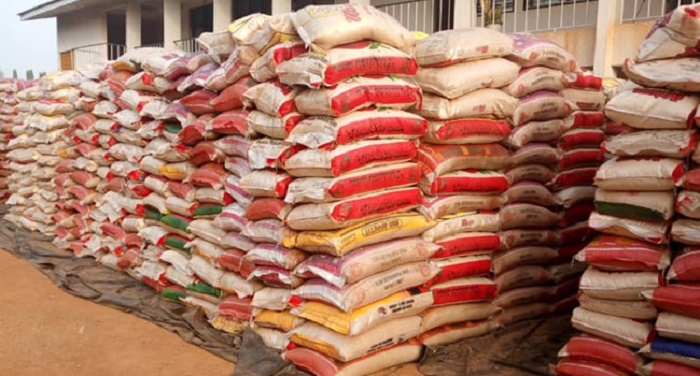Advertisement
Fourteen months after the Federal government shut its border to Neighbouring countries for reasons which included smuggling of rice into the country with the aim of improving the local production, questions around achieving self-sufficiency still lingers as local production faces challenges amidst interventions.
Rice production in 2019 was 4.9 million metric tons, which is below the seven million metric tons annual consumption.
In an effort to boost rice production in Nigerian, the Federal Government through the Central Bank of Nigeria had introduced an intervention program, Anchor Borrower Scheme, which offers finance to farmers at a lower interest rate, among others.
The policy had empowered over 1.3 million farmers and in the process facilitated the cultivation of over 1.3 million hectares of land across the country as well as the production of an average of 5.5 million metric tons of paddy at four tonnes per hectare.
Advertisement
The policy according to farmers had led to a significant increase in the number of rice mills, as over 95 processing mills across the country have been built and made effectively operational.
THE WHISTLER findings showed that the rice production for 2020 has been affected by several factors, which includes; flooding, high electricity tariff, poor road infrastructure, poor equipment and smuggling among others.
In a chat with THE WHISTLER, the National chairman, Rice Millers Association of Nigeria, Peter Dama, said that rice production in Nigeria has improved significantly, as more rice mills have been built and in operation across the country, leading to increased production.
Dama explained that while there had been an improvement in rice production, the major setback was the flood which affected farmers in some rice producing states such as Kebbi, and Kano among others.
He said, “We have made a lot of progress in rice production since the closure of the borders, we now have more rice mills in different parts of the country and this has indeed improved our production capacity.
Advertisement
“However, the major setback we have is the flood that destroyed farms in Kebbi, Kano and some other rice producing states, in all we still managed to get some produce.”
Speaking further, Dama decried the presence of foreign rice in the markets, stating that “It is disheartening to know that some unpatriotic men at the borders still allow foreign rice into the country.”
Speaking on the prices of local rice, with 50kg at N28,000, a little lower than 50kg of foreign rice which sells at N33,000, Dama said that there had been a drastic rise in the cost of production, as a result of increased cost of paddy, electricity tariff hike, as well as increased transportation cost among others.
He said, “The increased cost of production is of great concern to us, both Millers and Processors. The CBN governor has addressed us as regards the price and efforts are ongoing to ensure that prices are scaled down.
“If you go to the market, you would not blame rice millers, because the general costs of items are high, but we are working to ensure a reduction in the price of rice”.
However, Ibrahim Abdul, a Kaduna based rice farmer said that there is not so much that can be achieved without an increased investment in mechanization, roads and storage system.
Advertisement
He added that rice produce is often lost to poor roads and inefficient harvesting, milling and storage.
“Meeting the increased demand without proper equipment may be unrealistic, most of us still do not have access to a tractor and talk less of fertilizer and other chemicals.”
Chuka Obi, an Agricultural expert, in a chat with THE WHISTLER commended the policies and programs of the government which include forex restrictions, border closure and the Anchor Borrowers Program.
However, he said that the policies may not yield the desired result without adequate infrastructure.
He said, “The policies we have heard of and seen are impressive but are not sufficient to combat exogenous factors like flood, which is beyond the control of the government and the rice farmers.
“There is a need for proper irrigation and infrastructure, as this would help to cushion the effects of water-logging in farms.
“Many farmers are still practicing the manual process of production, and with this we can’t meet the demand.”



